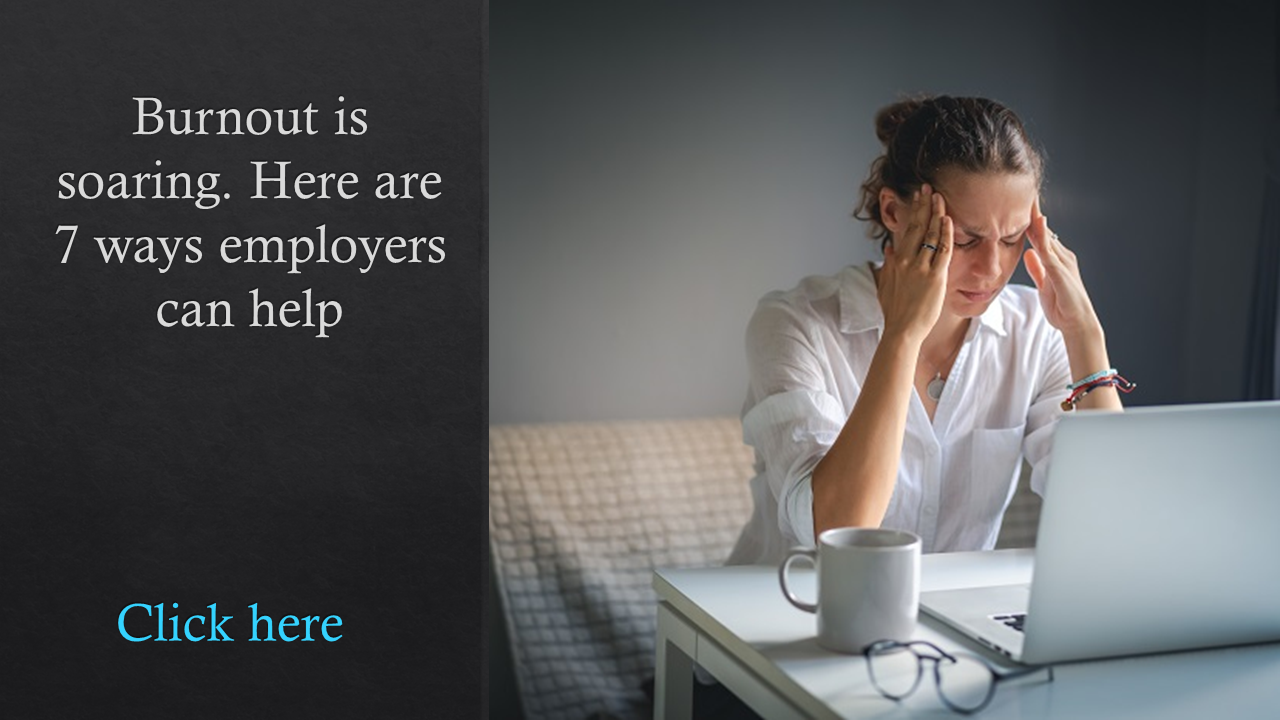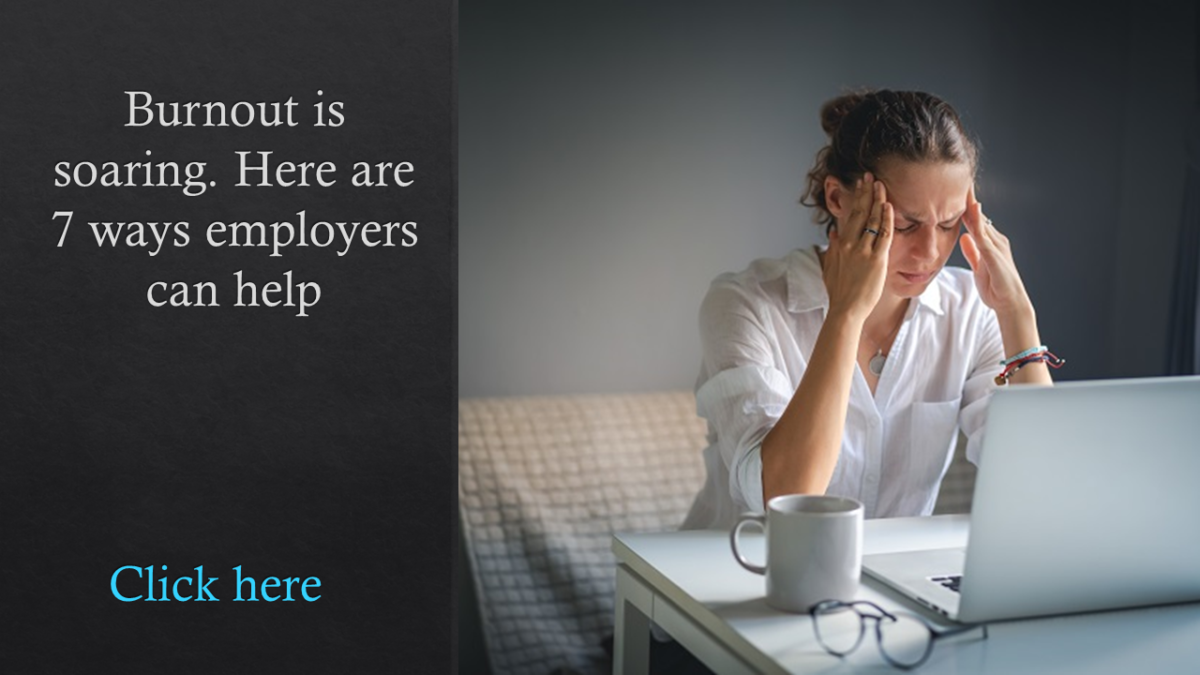Americans are not coping well with the recent COVID-19 surge, according to the latest Mental Health Index: U.S. Worker Edition. In addition to a sharp increase in employee anxiety, incidence of PTSD risk for all workers is up 83% when compared to pre-pandemic levels and has skyrocketed 61% over the past six months, the latest results find. Total Brain’s Mental Health Index, in partnership with the National Alliance of Healthcare Purchaser Coalitions, One Mind at Work and the HR Policy Association and its American Health Policy Institute, is based on 500 anonymized assessments randomly selected among thousands of Total Brain assessments taken each week.
What it means to HR leaders
Although mental health issues overall have increased over the course of the pandemic, the arrival of vaccinations, a slowdown in COVID-19 infection rates and increased employer efforts helped calm employees’ concerns earlier this year.
But now with the surging Delta variant, which is increasing infection rates, hospitalizations and deaths all over the country and causing uncertainty and havoc in the process, employees’ mental health is worsening.
“It is beginning to feel like we are back where we started,” says Matthew Resteghini, chief marketing officer of Total Brain.
 The good news is that employers and company leaders have learned a lot since March 2020 regarding how they can help employees, he says. “We know what is needed to support the mental health of our employees—candid conversations, empathetic leadership, flexibility, transparent and frequent communications, and robust mental health offerings that meet the needs of diverse employee populations.”
The good news is that employers and company leaders have learned a lot since March 2020 regarding how they can help employees, he says. “We know what is needed to support the mental health of our employees—candid conversations, empathetic leadership, flexibility, transparent and frequent communications, and robust mental health offerings that meet the needs of diverse employee populations.”
Mike Thompson, National Alliance president and CEO, adds that the need for organizations to double down on vaccinations “will be critical to normalize our workplaces and universally support the wellbeing of our employees.”
Related: What the Pfizer FDA approval means for employer vaccine plans
“Employers have the opportunity to put into action important lessons learned—the success of their employees and their businesses depend on it,” Resteghini says.
To hear more about the mental health crisis—and how employers can help—don’t miss HRE’s webinar Tuesday, Aug. 31 featuring experts including Thompson. Register here.
